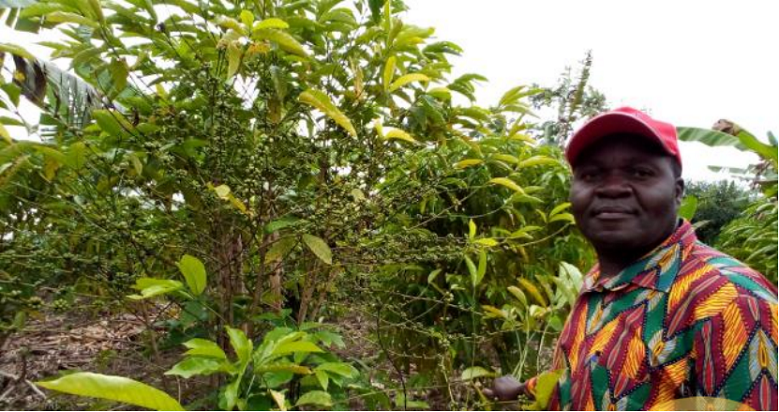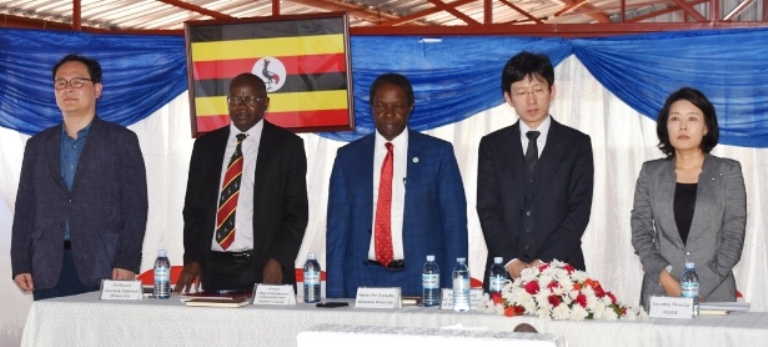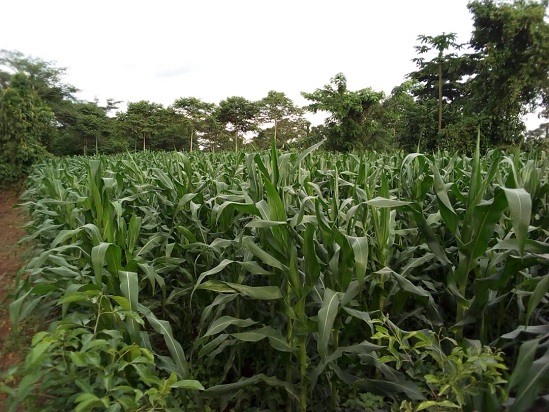A coffee farmer in Nwoya district
Only 24 farmers have embraced coffee growing in Kitgum since the cash crop was introduced in the district in 2015.
Beatrice Alela, the Regional Coffee Extension Officer for Uganda Coffee Development Authority (UCDA), attributes the limited interest by farmers in growing the crop to their firm conviction that coffee only grows well in central Uganda, a belief she says was instilled by the colonial government.
In their attempt to develop a cash crop economy in Uganda in the early 1900s, the colonial government segmented the country into agro-ecological zones with each specializing in a certain cash crop considered fit for its soil. For instance, Acholi which was then only Kitgum and Gulu districts, specialized in growing cotton, while West Nile concentrated in tobacco and Central Uganda was a coffee-growing region.
However, in 1999, coffee was introduced in the Acholi sub-region as an alternative perennial crop to cotton, to fight rampant household poverty that resulted from years of instability caused by the Lord’s Resistance Army (LRA).
Although this development was disrupted when the LRA war intensified and forced many into camps, it was resuscitated when President Yoweri Museveni launched Operation Wealth Creation in 2013, focusing on coffee and other perennial crops as a way of improving livelihoods and increasing wealth.
In Kitgum district, the cash crop was introduced in 2015. However, it is only Mucwini sub-county that has ten farmers, the highest in the district, followed by the Pager division with four farmers. The rest of the sub-counties and divisions mostly have only one and not more than two farmers concentrating on the crop.
Alela says that few farmers are interested in growing it, while many who had started growing it abandoned the plants.
Another challenge, she says, is that people leave their coffee plants to grow unattended, and end up getting destroyed by wildfire. She explains that because coffee stems fall under softwood, they can’t recover whenever they have been burnt.
Kitgum district, just like many parts of Acholi Sub-region suffers from a chronic problem of wildfires that are set every dry season, which leaves many crop gardens and fruit trees destroyed. Last month, the coordinator of Operation Wealth Creation in Kitgum revealed that 80 per cent of perennial crops under the program don’t survive because of bush fires.
However, Alela explains that if a farmer needs to manage their coffee well during the dry season, especially in the first year of planting, and the next year, the plants won’t be disturbed much by wildfire.
George Okello, a Coffee farmer in Labongo Akwang Sub-county in Kitgum district, started growing in 2018 and now has an acre of the crop. Okello however says it takes hard work especially in digging the hole for planting the seedlings and using drip irrigation for the seedlings to survive drought.
He explains that because of the high demand for attention in the first two years, the eleven other farmers who started growing coffee with him in the same year in his sub country have all dropped out.
Okello thinks coffee is a great crop that saves one during retirement and encourages other farmers to embrace it saying they might suffer now but enjoy it later.
Coffee is the oldest cash crop and major foreign exchange earner for Uganda. Data from the Uganda Coffee Development Authority indicates that farmers exported 6.49 million 60-kg bags of coffee for the 2020/21 season compared to 5.36 million 60-kg bags in the 2019/2020 season.
However, the same coffee body notes that Northern Uganda contributes the lowest per cent of coffee production, with only 6 per cent, followed by South Western Uganda with 11 per cent, compared to central which contributes the highest 38 per cent, which is the highest in the country. Eastern and Western Uganda each produce 22 and 23 per cent, respectively.
-URN





